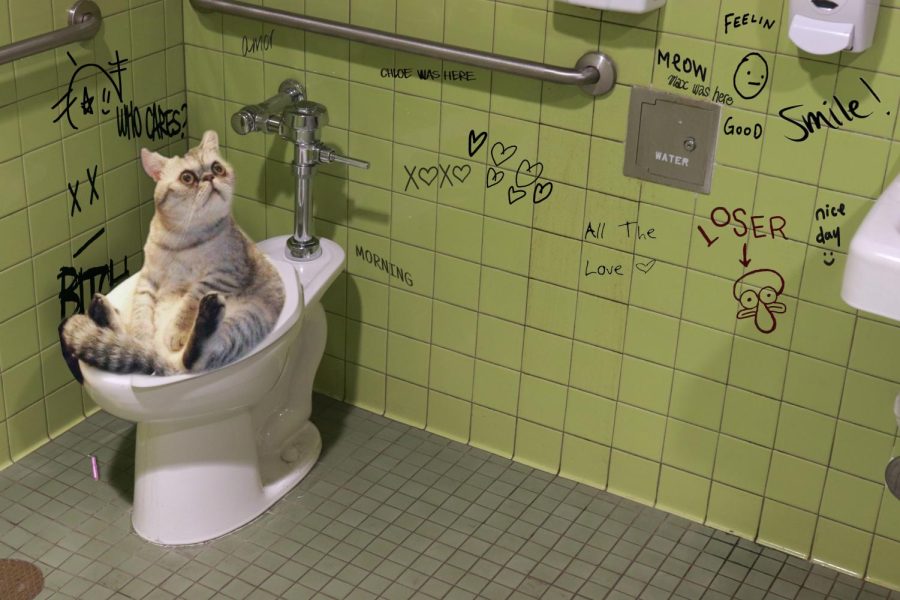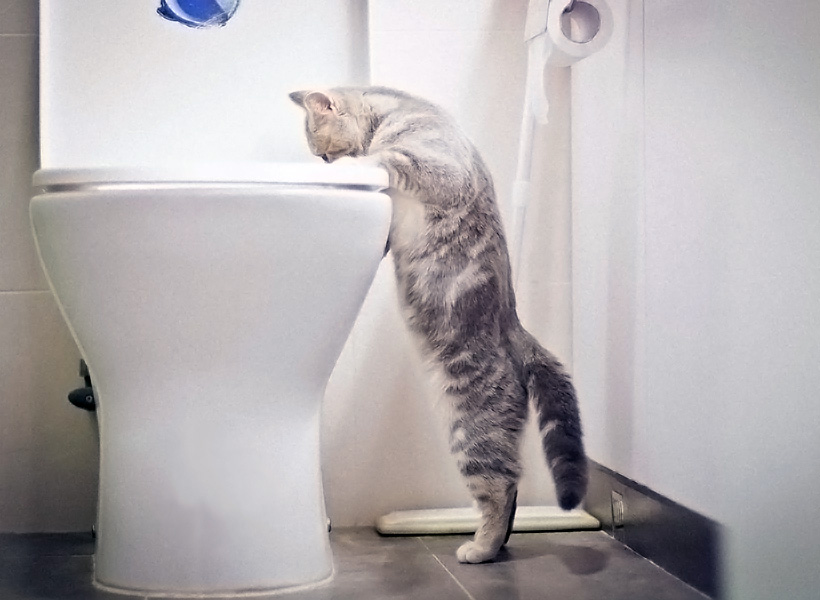Your Threats of Flushing Animal Waste Down the Toilet
Your Threats of Flushing Animal Waste Down the Toilet
Blog Article
Just about everyone will have their personal way of thinking in relation to Can You Flush Dog and Cat Poo Down the Toilet?.

When it pertains to getting rid of waste, specifically animal waste, lots of people usually turn to the hassle-free option of flushing it down the toilet. Nevertheless, this apparently very easy solution can have major repercussions for the atmosphere and public health. In this write-up, we'll discover why flushing pet waste down the commode is a poor concept and give alternative approaches for correct disposal.
Intro
Appropriate waste disposal is crucial for keeping ecological sustainability and public health. While it may appear safe to purge animal waste down the toilet, it can lead to various concerns, both for the setting and human wellness.
Risks of flushing pet waste
Ecological effect
Flushing pet waste presents dangerous bacteria and pathogens into rivers, which can negatively affect aquatic ecosystems. These microorganisms can pollute water resources and harm aquatic life, disrupting delicate communities.
Public health problems
Pet waste consists of damaging microorganisms such as E. coli and Salmonella, which can pose major wellness threats to humans. Flushing animal waste down the bathroom can infect water products, leading to the spread of diseases and infections.
Alternatives to flushing
Rather than flushing pet waste down the commode, there are numerous different disposal approaches that are more eco-friendly and hygienic.
Composting
Composting pet waste is an environmentally friendly method to get rid of it. By composting, raw material is broken down right into nutrient-rich soil, which can be utilized to fertilize gardens and plants.
Garbage dump disposal
Throwing away pet waste in a landfill is an additional alternative. While not as environmentally friendly as composting, it is a safer choice to flushing, as it avoids the contamination of water resources.
Animal garbage disposal systems
There are specific pet garbage disposal systems readily available that safely and hygienically dispose of pet waste. These systems often utilize enzymes to break down waste and eliminate smells.
Actions to proper animal waste disposal
To make certain proper disposal of animal waste, comply with these steps:
Scooping and landing waste
Routinely scoop and bag animal waste using biodegradable bags. This avoids waste from contaminating the environment.
Making use of marked waste containers
Dispose of bagged pet waste in marked waste containers, such as garden compost bins or garbage dump containers. Prevent flushing it down the commode in any way prices.
Cleaning up can and pet areas regularly
Regularly tidy litter boxes and pet locations to prevent the build-up of waste and germs. Use pet-safe cleansing products to maintain hygiene.
Advantages of appropriate disposal methods
Embracing appropriate disposal approaches for animal waste supplies a number of advantages:
Lowered environmental pollution
Correct disposal methods decrease the threat of environmental pollution, protecting rivers and communities from contamination
Lessened risk of water contamination.
By preventing flushing pet waste down the commode, the threat of water contamination is considerably lowered, protecting public health.
Enhanced cleanliness and hygiene
Appropriate disposal techniques promote much better cleanliness and hygiene, creating a safer atmosphere for both people and animals.
Conclusion
In conclusion, flushing pet waste down the read more bathroom is damaging to the atmosphere and public health. By adopting different disposal techniques and complying with appropriate waste management techniques, we can reduce the negative effect of animal waste and add to a cleaner, healthier earth.
What To Do With Dog Poo – The Do's And Don'ts Of Disposing Of Faeces
Dog poo bins
Some councils provide dedicated dog waste bins in popular dog-walking areas that can take dog poo that has been bagged but you can legally dispose of dog waste in any public litter bin, as long as it is securely bagged. This also applies to your wheelie bin at home.
Do not flush
Water companies do not recommend flushing dog faeces down the toilet because certain parasites can survive the water processing treatment and are potentially harmful to humans. You should also never consider flushing dog poo that has been bagged down the toilet as the bags will not break down and instead create severe blockages in the sewage system.
In the woods
The Forestry Commission promotes a ‘stick and flick’ method for dealing with waste in the woods. This means finding a stick and using it to flick any poo from off the path so that it is out of the way of other walkers. You could also bury it as long as it is not in an area where there might be livestock.
Livestock
Parasites found in dog poo can be transmitted to livestock if they inadvertently eat infected faeces that has been left on grazing land. This could result in the death of sheep or abortion in cattle so you should always make sure you pick up your dog’s waste in fields where livestock could be present.

Regularly tidy litter boxes and pet locations to prevent the build-up of waste and germs. Use pet-safe cleansing products to maintain hygiene.
Advantages of appropriate disposal methods
Embracing appropriate disposal approaches for animal waste supplies a number of advantages:
Lowered environmental pollution
Correct disposal methods decrease the threat of environmental pollution, protecting rivers and communities from contamination
Lessened risk of water contamination.
By preventing flushing pet waste down the commode, the threat of water contamination is considerably lowered, protecting public health.
Enhanced cleanliness and hygiene
Appropriate disposal techniques promote much better cleanliness and hygiene, creating a safer atmosphere for both people and animals.
Conclusion
In conclusion, flushing pet waste down the read more bathroom is damaging to the atmosphere and public health. By adopting different disposal techniques and complying with appropriate waste management techniques, we can reduce the negative effect of animal waste and add to a cleaner, healthier earth.
What To Do With Dog Poo – The Do's And Don'ts Of Disposing Of Faeces
Dog poo bins
Some councils provide dedicated dog waste bins in popular dog-walking areas that can take dog poo that has been bagged but you can legally dispose of dog waste in any public litter bin, as long as it is securely bagged. This also applies to your wheelie bin at home.
Do not flush
Water companies do not recommend flushing dog faeces down the toilet because certain parasites can survive the water processing treatment and are potentially harmful to humans. You should also never consider flushing dog poo that has been bagged down the toilet as the bags will not break down and instead create severe blockages in the sewage system.
In the woods
The Forestry Commission promotes a ‘stick and flick’ method for dealing with waste in the woods. This means finding a stick and using it to flick any poo from off the path so that it is out of the way of other walkers. You could also bury it as long as it is not in an area where there might be livestock.
Livestock
Parasites found in dog poo can be transmitted to livestock if they inadvertently eat infected faeces that has been left on grazing land. This could result in the death of sheep or abortion in cattle so you should always make sure you pick up your dog’s waste in fields where livestock could be present.

As a reader about Don't Flush Your Pets Poo Down The Loo, Vet Warns, I assumed sharing that portion was a good thing. Remember to take a moment to promote this write-up if you liked it. Thanks a bunch for being here. Please visit our blog back soon.
Call Report this page